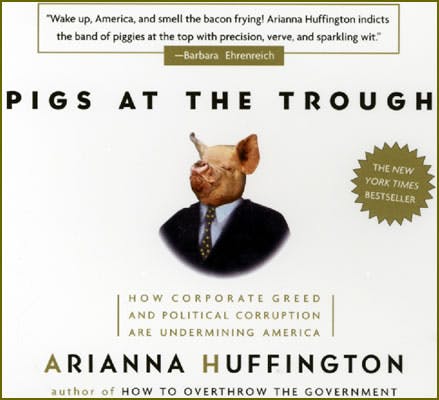Abbotsford Heat Dipping Into Public Coffers
By Kent Wilson
14 years ago
Outside of trades for doddering Oiler defensemen and fourth round draft picks, it seems the Flames orginzation is annoying people outside the realm of hockey decisions as well.
In this Province article, Kent Spence relates a cozy little deal the Heat have with the city of Abbotsford, as well as the local residents resistance to the arrangement:
Council approved a deal with the Heat on Monday that will guarantee the team its $5.7-million annual expenses, regardless of fan support, which is 34-per-cent below expectations.
The subsidies absolve the team from paying its $200,000 annual rent at the Abbotsford Entertainment and Sports Centre unless a profit is made.
…
Vince Dimanno, president of the Abbotsford Ratepayers Association, said the subsidy amounts to a $57-million "liability" over the 10-year length of the deal.
"It’s debt. Abbotsford has assumed all the risks. The owners risk nothing. There is no business plan to turn this money-loser around," he said.
The article also notes that the city is having trouble finding budgetary resources to pay for police, road repair and a local community pool. City manager Frank Pizzuto’s lukwarm response was "a thriving community needs a little bit of everything. Council made a tough decision [on the contract], but I think time will prove it was a good one."
The decision to invest public funds into professional sports is hardly original or unique to Abbotsford. North American sports teams of every stripe and color have been dipping into the public trough for decades, usually in the form of subsidies to build and/or maintain arenas and the like. The Edmonton Oilers have been revving up their own propaganistic campaign recently to convince tax payers up North to okay the creation of a fresh new Rexall place for their billionaire owner.
There are several economic and non-economic arguments often made in these cirucmstances. The latter usually consists of pandering to civic pride by implying that a sports team or facility will somehow make the city bigger/better/more interesting, be it in the eyes if the locals or people in general. This argument has been frequently proferred in the recent Oiler debates, with the need to re-make Edmonton into a "world class city"*: a claim that is somewhat echoed by Pizzuto’s claims above about the needs of a "thriving community".
*(I would suggest that the new facility would have to be house navel battles and gladitatorial wars between slaves, lions and Christians in order for it to accomplish that feat. But I digress.)
The economic arguments usually consist of theorized future benefits such as an increase in concert/events, improved development in and around the arena as well as the creation of new jobs associated with the team. Unforuntately, most economic studies done on the subject have found that the benefits of public investment into pro sports teams/arenas to be, at best, limited (and, at worst, major liabilities). As Roger Noll and Andrew Zimbalist argue in this article:
Unfortunately, these arguments contain bad economic reasoning that leads to overstatement of the benefits of stadiums. Economic growth takes place when a community’s resources – people, capital investments, and natural resources like land – become more productive. Increased productivity can arise in two ways: from economically beneficial specialization by the community for the purpose of trading with other regions or from local value added that is higher than other uses of local workers, land, and investments. Building a stadium is good for the local economy only if a stadium is the most productive way to make capital investments and use its workers.
Stadiums and teams are of value insomuch as they create value in the community. And if that were the case, one could obviously argue that no public money would be required, because private dollars tend to flow in the direction of value creation (meaning: good investments). On top of all that, the current deal is a terrible one for the city of Abbotsford because it’s a bad bet; the city assumes all of the future risk while the team accrues a huge chunk of the benefits. If the Heat fail to attract fans and garner revenues, the city (meaning, the tax payers of Abbotsford, both hockey fans and non-hockey fans alike) are stuck with the bill. If they’re successful, both parties "win" although even then there’s no way to know if the city could have used it’s resources in a more efficient or perhaps more civically responsbile manner. Either way, the Flames organization can’t lose here. For Abbotsford, however, there is a huge potential downside.
The risk isn’t a trivial one either. AHL hockey is a tough sell, as evidenced by the fact that the Flames have had to move their minor league team no less than three times in the last five years in the vain search for a viable market. There’s mutiple reasons AHL hockey is a lackluster business opportunity – it’s "not quite" proferssional hockey, the lack of bonafide stars, the fluidity of rosters etc. In 2007-08, the average attendance per game across the league was just 5,115. Keep that figure in mind when consider the fact that the 7,000 seat Abbotsford Entertainment and Sports Center cost the BC tax payers $82 million to construct…on top of which the city is now guaranteeing the Heat their yearly expenses.
I’m a fan of the Flames hockey team and, in general, I like the Flames organization. The Franchise has always struck me as a strong community leader and corporate citizen here in town. But this scheme is pure pork barrel politics. It’s exploitative and should be roundly denounced as such, even by those of us beyond the city’s borders.
Recent articles from Kent Wilson





